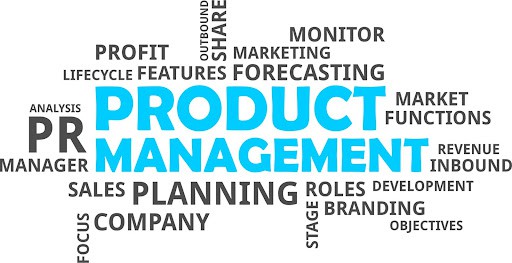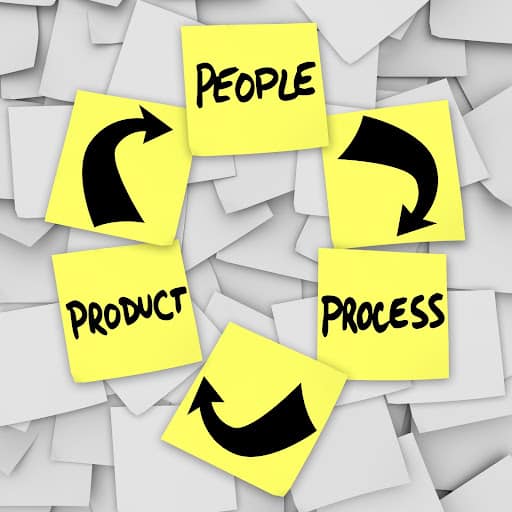Why Is It Important To Create Empowered Product Teams?

It’s not simple to talk about empowered product teams, so let’s start by defining what an empowered product team is and how to tell if you have one. Many businesses want to adopt empowered product teams, yet they are frequently misunderstood or poorly handled. Being responsible for the success of a product is what ownership entails. Do you have business outcomes for success metrics, or are your success measures focused on output? In an output-driven society, delivering thousands of lines of code that add nothing to the bottom line would be considered a success.
Even if you worked together and bargained with stakeholders to come up with this list, it’s still an output-driven strategy. Your job in that environment is to deliver these features, but no one can know ahead of time if they are the proper features to construct at the time.
In an empowered product team, the product manager consults with stakeholders on the most critical and urgent challenges to tackle, rather than on the specific features to create over the year. It concentrates everyone’s thoughts on the result. Your understanding of what works and doesn’t grow as you build, release, and measure iteratively. As a result, the plan must be a live document that provides maximum transparency to all stakeholders.
What Are The Benefits Of Empowered Teams?
As a product manager, this sounds wonderful and “empowering,” but do stakeholders know what needs best because they are the specialists in their fields? Yes, they are, but they are only familiar with their particular business area, and none of them are likely to be digital professionals.

The sales unit will ask you to build things that sales leads have placed an order for. To better target customers, the marketing team will ask for personalization. The list goes on. If all of your ideas are focused on the product’s major problems and how to solve them, you’ll get better results.
A product team with complete authority to develop solutions to the agreed-upon questions challenges may better judge what to construct. The four most important questions are:
- Is this useful to customers in the sense that it solves a genuine problem for them?
- Is this a realistic business strategy? Does this fit within our company’s parameters, or may it, for example, have tax or legal ramifications or harm our brand in any way? Stakeholders are needed to provide their knowledge.
- Is it viable from a technological standpoint? Do we have the technical know-how and platforms in place to accomplish this at a reasonable cost?
- Is it possible to use it? Answer this question with design skills and usability testing.
As you can see, finding the proper answers to these four questions necessitates the participation of the whole product team and stakeholders who can add their experience.
As a result, the word “empowered” relates not only to product ownership but also to the ability of each team member within a product team to contribute to the identification. The best solution for a product manager is to make it easier for stakeholders to collaborate and for the team to find answers. Your involvement is critical in achieving positive results, but it does not include telling your team what to construct. Product Manager Jobs will make the business more convenient, and the product manager should be a very responsible person.
How to Build a Self-Assured Team?
Many businesses want product management to play a more significant role in their operations. It is described as “digital transformation,” “agile transformation,” “business agility,” and even “customer value streams.” It acknowledges that advising development teams on what to construct does not always result in good results.

When forming agile teams with an agile product owner, many firms even adopt product management for the first time. However, establishing or transitioning to a fully empowered product team is not simple. Stakeholders may be apprehensive at first because they may believe that some of their influence over what is built is being taken away. It is critical to engage them regularly to demonstrate that their subject matter knowledge is still highly appreciated and contribute to the priorities set.
In addition, agile product owners in existing teams may be very junior individuals who are only doing their tasks.
When it comes to making judgments about what to develop, the agile literature is silent on the role of an agile PO. It might be intimidating for a PO to take on the product manager role and assuming fundamental responsibility for the product, requiring training and coaching.
Empowering teams requires management support as the product is raised into a more senior role in this model. Communication with stakeholders is critical, but demonstrating is much more vital than telling. One technique is to agree on a small but significant problem, set a success indicator, and quickly tackle the problem with a creative (small) solution.
It may swiftly demonstrate the problem – solution – success metric loop and build trust.
It will take a long time for stakeholders and management to recognize the benefits of this strategy and learn to trust you if you start with a comprehensive website revamp or technology migration as your first challenge to tackle as an empowered team.
Conclusion
To conclude, many companies will claim to have a strong product management discipline, but this isn’t always the case when looking behind the scenes. Those that succeed are often more creative, quick, high-quality, agile, and adaptable than their competitors. In today’s fast-paced world, all of these are necessary. PALARINO PARTNERS excels in putting together top-notch product management teams. It will ensure that your product is a massive success in your company. PALARINO PARTNERS will march your company to triumph.
5 Must-Know Product Management Trends Of The Year

It is particularly true for product managers, whose importance expanded in 2021 and will continue to grow in 2022 as organizations make the pivot to becoming more digital. With 2021 being a transition year – between the pandemic and a gradual return to our “normal” rhythm, here are five ways product management trend made some massive changes:
- How Digital products will be critical to corporate expansion
- Product roles are becoming more specialized
- The Product Operations Manager’s Ascension
- Evolving of Product management tools at a quicker rate
- Importance of establishing genuine consumer relationships
Let’s take a closer look at each one:
1. How Digital Products Will Be Critical to Corporate Expansion
Lockdowns, limitations, and social alienation forced more people to be present online this year. The once-slow expansion of digital commerce exploded in 2020, as brick-and-mortar companies were forced to rely on online sales to stay afloat. Other historically physical areas, such as finance, healthcare, and education, have become more digitally reliant.
Product managers were promoted to more critical roles in their companies as corporations worldwide advanced digital transformation initiatives. We could not have predicted the tremendous rate of change in 2021 but expect it to continue at a similar rate in 2022.
2. Product Roles Are Becoming More Specialized
Great product managers typically have to be well-versed in all aspects of the product development process. However, as the function becomes more critical and firms establish larger product teams, we’ll see specialization as product manager jobs focus on specific areas. According to product-related job postings, businesses are already looking for experts in customization, platform components, enterprise, growth, mobile, and operations.

As historically non-digital major organizations broaden their product emphasis, the demand for exports will rise. At the same time, the talent pool is unlikely to be sufficient to fill these newly vacant positions. Over the next year, companies that can put together the perfect team of complementary product specialists will have an advantage over their competitors.
3. The Product Operations Manager’s Ascension
One of the most important of the new product management expert jobs will be the product operations manager, whose job will be to supervise and improve how the whole product team functions, from alignment to communication to procedures. Because of the increasing specialization of products, efficient operations are becoming increasingly vital. Product operations managers must guarantee that those newly divergent teams focus on what they do best while interacting successfully with one another and the rest of the company. While switching to the new job, there will be many product management interview questions that you have to answer.
It will entail designing, developing, and implementing new procedures for the whole product team and investigating, choosing, and integrating the finest technologies and services available. Product operations will also be in charge of gathering and sharing data with the rest of the company and forming and maintaining direct links between product teams and consumers.

4. Evolving Of Product Management Tools At A Quicker Rate
The expanding product management software ecosystem, which now contains hundreds of solutions to assist with all phases of the product life cycle, will require product operations to unlock efficiency. These services, like the product management function, are becoming more specialized.
The greatest of these technologies improve existing operations and open up new possibilities for how teams collaborate. By combining with other specialized tools, the next generation of product management solutions will need to give the new breed of experts increased depth and flexibility while staying accessible to stakeholders outside the product team, including customers. Product operations will require additional features and capabilities as they establish and create methods for managing their teams, accelerating change throughout the whole ecosystem.
5. Importance Of Establishing Genuine Consumer Relationships
Product management has steadily evolved from an internal or technological focus to incorporate more external consumer participation in recent years. Product teams can produce better goods and services for more people if they have a more profound knowledge of what users genuinely want. However, the impact of COVID-19 has made it more challenging to maintain those connections, as face-to-face workshops, discussions, and user testing have all come to an abrupt halt.
New technologies that make recorded client conversations more accessible have helped to close the gap. However, people’s behavior altered so dramatically in 2020 & 2021 that product managers will need to restore direct links with customers in 2022. Making product operations the primary point of contact for customers may be an excellent strategy to strengthen customer connections and ensure that the company has a constant product feedback and insights stream. Furthermore, solutions may assist in bringing consumers into the dialogue by collecting their insights and sharing progress without the need for face-to-face engagements.
In 2022, product management trends are uncertain yet interesting!
Uncertainty about the future will continue to permeate everyone’s life in 2022. However, one thing is sure: this is an exciting time to work in product management. Many people and organizations who found the simplicity and convenience of digital services during the epidemic will continue to use them after COVID is gone. The importance of product management as a strategic component of a wide range of companies will continue to rise through 2022 and beyond!
Checklist For A Product-Driven Company

Product management is essential in every organization. It is the combination of product development, customer experience, sales, and marketing. Sometimes people also call this being the “Product Caretaker.” In today’s fast-paced world, every product manufacturing company has to present their products in a unique way such that their customers are forced to buy them. Here, the group product manager plays a vital role in a product’s success.
“Studies say that a good product manager can increase the profit of an organization even by 30% in many cases.”
A good product manager sets the lifecycle of your product from start to finish. They define the vision and plan for necessary updates of the product. They also have a pulse on whether or not the customers are satisfied with the product. A group product manager plays an important role in turning an average-performing company into a successful product-driven company. If you think your company hasn’t tasted success in product management, below are some traits that can help you become a product-driven company.

Put The Product Closest To The Customer
This trait is the heart and soul of making your company product-driven. If you think your company provides bespoke solutions to each customer, think again. A product-driven company pays more attention to building a product that will have the biggest influence on the target market. If you put all your focus on the target market, rather than every single customer, your customers will definitely be satisfied with a quicker-available product at its best price. A good product-driven company always keeps pricing much lower than the cost of custom solutions. .
Use Technology
This aspect determines the relationship between the engineering and product organizations. If you don’t have talented engineers, even your greatest product idea will fall short. Why? Because engineers are the ones who build the products that delight the customers. One of the experts in product management explains this with the help of an example. Imagine a lawn mowing company consisting of only one mower in the beginning. With the increase in the number of customers, it reaches an inflection point where hiring more people becomes less efficient. So it should rely on technological solutions. Ultimately, this company can progress with the solutions like a group of robot-mowers is helping in mowing.
Follow Market Trends
The vision of a product not only completes after understanding the customers’ needs, but you also need to ensure what they may require in the future. The product management teams within your organization must focus on market research for current trends and anticipate upcoming shifts in the market. It’s also beneficial to be subscribed to newsletters of products within the same industry you are dealing with so that the inboxes of your team members are getting the latest updates.
Get Success By Saying “NO”
Steve Jobs has rightly said that “you have to say no to a million things to really bring out the innovation”. This is especially true for product-driven companies. The product-driven companies have a clear definition of what their market is and assertively say “no” to customers or things outside of their target market. Experts say that organizations must know where they are getting feedback from and whether or not that buyer is really on the list of the target market. You can create a “yes or no” flowchart for different things like requests or any issues you choose to accept and keep on the priority list.

Now It Becomes Easier To Operate And Go To Market As A Product-Driven Organization.
Are you or your organization putting more effort into being more product-driven? If yes, then look no further. The experts of PALARINO PARTNERS are here, at your beck and call. We build world-class product management teams. It’s no secret now that hiring the right product manager for your company will elevate your organization and ultimately produce better returns.
To Sum It All Up!
Product management teams help organizations to better face competition. They show you how you can most optimally utilize resources to meet the capacity utilization objective. Furthermore, you can reduce the cost of production with effective product management. Ultimately, this helps the company to grow with the quality of its products and services in an ever changing market.
If you don’t have a proper product management team in place – no need to worry! Reach out to us at PALARINO PARTNERS and we will do the heavy lifting to get your team on track and on target. What are you waiting for? Without any further ado, get in touch with us for more information to reduce the risk of your product failure.
Surprising Facts About Product Manager Careers in 2022

The role of a Product Manager is becoming increasingly prevalent in today’s market; let’s take a look at some of the Product Manager career options in 2022.
What Is The Role of a Product Manager?
A Product Manager’s role is to assess the requirements and issues of their target customers and to then turn their findings into suggestions for new product development or improvements to existing products. They create business cases or investment idea proposals, work directly with technical or research and development departments, to define specifications and streamline the process of converting the proposal into a new product once it has been approved by management.
Product Managers are able to accomplish all of this by leading, engaging, and guiding people and functions throughout their business, sometimes with no more institutional power than their ability to persuade others to align with their viewpoints. Product managers quickly become subject matter experts in their respective sectors and oftentimes are called upon to advise customers or prospects, to speak at trade shows, and submit writings for field-related publications.
Now comes the question of how to break into product management.
- Networking may help you learn about job openings before they appear on job boards and gain insider information on what the hiring manager is searching for.
- Networking on LinkedIn allows you to connect with other professionals within your desired fields.
- Update your resume and interview skills as much as possible. Go through the Product Manager Interview Questions to know about the technicalities.
- Even if it’s only for a few hours a week, firms will take as many internships as they can. Some companies will even provide summer or seasonal paid training.

How To Become A Product Manager?
To become a product manager, what sort of education do you need? Product managers have a range of educational backgrounds, including marketing and engineering degrees, among many others. Although there aren’t any specialized college courses to prepare for the position – product managers, generally speaking, are committed to lifelong learning and many will hold a product management certification.
For anybody interested in product management and who wants to learn more about how to be a successful product manager, there are a variety of workshops, boot camps, and training options available.
- As more and more organizations are hiring product managers, there may be an expectation that product managers understand their company’s sector, whether it’s technology, insurance, or something else entirely.
- Market orientation – have a deep understanding of the market and its trends, their competitors and partners, along with their go-to-market strategies.
- Soft skills – the ability is to motivate and manage a team and interact successfully with customers, coworkers, and external stakeholders.
- Technical abilities include knowledge of current technological trends, understanding the technology stack, and overseeing the product development life cycle.
Is It Necessary For Product Managers To Be Technical?
The simple answer is no; just a minimal amount of product managers now have coding experience. However, strengthening your technical abilities can have a lot of benefits. You will be more competitive as a candidate if you have an excellent technological basis. Having technical skills means you’ll be able to analyze how your team plans to complete the task while you’re working with them.
Your staff will be able to bring up concerns they’re experiencing to you and they’ll take your product views more seriously since you understand what’s going on behind the scenes. Being technical also means creating a more realistic roadmap since you understand the problems from both a technical and a product standpoint. It will help you better understand who is involved when and how to prioritize tasks for your team.
What Do Product Managers Do For A Living?
According to some research, product managers spend most of their time figuring out what the right product is, and they have a firm grasp of current market trends, what their competitors are doing, and what consumers want. They spend most of their time assisting with the delivery of the product, which means they must assess what the team has created and that it fits the goal of what consumers are looking for.
Product managers must believe in the product they are working on and rally the team behind them to gain customers. They spend one-fourth of their time working with the marketing team to market the product. They must also collaborate closely with their sales staff to appropriately emphasize the most outstanding aspects of their development and ensure that clients do not overlook these essential selling factors.
What Is The Route Of A Product Manager’s Career?
Many firms begin by recruiting Junior or Associate Product Managers, with Product Managers being the next level up. As a result, the most usual path for Product Managers is to advance to the position of Senior Product Manager and then to a situation akin to Product Management Director. While each company has its product manager jobs path, this appears to be the most common.
What is the Role of a Corporate Product Manager

Product Management is a demanding and rewarding career. A corporate Product Manager plays an integral role in developing and implementing products that generate revenue for their company. They work closely with cross-functional teams, presenting and defending their ideas to executives, product marketers, engineers, designers and other stakeholders. The successful candidate will be highly analytical so they can understand customer needs and present solutions to meet them; creative so that they can create innovative products; articulate to convey complex information in a concise manner; collaborative because they must work well with others on the team; strategic because they must see how new initiatives fit into larger business goals; empathetic since the success of every product depends on understanding users’ needs while balancing different interests within an organization.
Sam Cook, Product Manager at Facebook, says, “A corporate product manager must stay relevant and constantly learn. As new products are developed, the Product Managers own the launch plans for these new initiatives. The effort required to master them is one of the core challenges of the role.”
The Qualities of a Corporate Product Manager
To be successful as a Corporate Product Manager, you must have the following characteristics:
Exceptional communication skills are essential to gain buy-in from various stakeholders within an organization. Corporate Product Managers will need to communicate complex issues in a clear and accessible manner to other team members who work across many different divisions throughout their company; clearly convey benefits that motivate decision-makers at all levels; and influence colleagues and key company leaders with data-driven arguments about how proposed business decisions will impact primary business goals like revenue generation, brand image and competitive advantage.
The ability to prioritize is another must-have if you want to become a Corporate Product Manager. It is important to look at the big picture and know what initiatives deserve your attention and resources to positively impact the company. They will need to focus on projects that meet primary goals while keeping secondary goals in mind, as well as stay flexible by shifting priorities if there is a more urgent need, like when a new initiative becomes available or when it’s time for cross-functional teams to pivot to another idea.
A strong sense of objectivity will help you make data-driven decisions as a Corporate Product Manager. You must be able to separate bias from fact so that you can present an argument with concrete examples rather than mere opinions; consider both sides of the story before making a call on how to proceed, and be able to think outside of the box while looking at potential solutions.
Creative prowess is an asset in this role since you will need to create new ways to engage your audience with interactive content that can attract their attention and provoke action.
Proactive problem-solving is essential because you will encounter roadblocks on your journey as a Corporate Product Manager that will require innovative solutions. You must see opportunities where others only see limitations, anticipate what obstacles may come up along the way before they arise, and take responsibility for solving problems without depending too heavily on others within your organization.
Lastly, a willingness to learn is another key characteristic that will take you far as a Corporate Product Manager, especially when your role involves managing digital products. To be successful in this career path, you must understand current market trends; know what motivates customers and how to engage them throughout the customer journey, and stay up-to-date on new technologies and platforms so that your team can launch innovative programming.
The Process of Becoming a Corporate Product Manager at a Company
- Gain Experience Related to Product Management: First and foremost, you need experience working within an organization responsible for leadership and executing multiple projects or initiatives. If you have been working in corporate marketing or PR roles for several years, you could apply for a Product Management position.
- Gain Experience in the Field: If you don’t have previous experience working as a Product Manager, it is beneficial to gain experience at one specific type of business, like eCommerce or retail, before moving into Corporate Product Management. You might also consider spending some time as an independent consultant or freelancer because you will be able to offer your skills and expertise to different companies without needing their sponsorship as you build your career.
- Apply for Product Management Jobs: Once you’ve gained the necessary industry experience, you can begin looking for internal jobs within companies that recruit candidates with those qualifications. Search job listings online; attend networking events, and reach out to your professional contacts.
- Obtain a Sponsor: To be hired for a Corporate Product Management position, you will most likely need the support of someone in leadership or human resources at your company; ask around and see who might be willing to champion your candidacy.

The Biggest Challenges and Reward of Being a Corporate Product Manager
The biggest challenge is achieving success on every project that you undertake with minimal mistakes and failures. If even one initiative falls short of its goals, it can damage your reputation and the company’s brand image. However, the rewards are great when things go well because everyone knows when they have done good work.
One of the biggest challenges is consistently coming up with new ideas regularly because projects and initiatives will always be assigned to you, but never enough time to complete them all as you juggle multiple responsibilities at once. In some cases, there may not even be any new product needs for your team within your industry, which can lead to monotony if those are the only types of ideas that you work with every day.
On the bright side, this responsibility makes product managers invaluable assets within their companies because they often have a unique perspective on engaging customers and using technology effectively. They can also help cut costs by identifying areas where it is possible to reuse materials or services.
Corporate Product Managers are typically given authority over their projects and teams, which can be empowering but intimidating at times because they must always stay calm under pressure when making decisions that could affect their bottom line.
The Career of a Corporate Product Manager Compared to Others in Their Field
Product Managers can work for corporations large and small across various industries, whereas Marketing Managers typically work with the same types of businesses within specific sectors. Sales professionals may find themselves limited to selling products or services from other companies rather than managing them.
The biggest difference between product management jobs and other careers is that it requires an extraordinary amount of creativity because Product Managers must always come up with new ideas. Marketing business’s overall goals limiting professionals, salespeople, and consultants may not need to do this aspect of their jobs, which can limit how much input they have into the overall goals of the business.
Product Managers may sometimes serve as project leads for various initiatives across multiple functions within a company, whereas marketers usually focus on promoting various products or services through different channels. Marketers might also conduct research to help identify new areas where a company could sell its products but leave it up to Product Managers to decide whether those opportunities are profitable enough to pursue.
Product Managers often have more control over their time than other professionals who may be assigned specific tasks or meet strict deadlines because the work of marketers and salespeople is structured around meeting those goals rather than having as much flexibility as product managers.

Advice for Someone Who Wants to Become a Corporate Product Manager
- Develop an extensive knowledge base through outside reading, attending conferences, and networking with fellow professionals; this will help you become well-rounded and give you a competitive edge against others within your field.
- Maintain strong interpersonal skills, which can give you an edge over other applicants because it demonstrates your potential to build supportive working relationships with customers and coworkers alike.
- Exercise your creativity by constantly looking for new ways to solve existing problems. Someone merely looking to cut costs will lack the passion needed to succeed as a product manager within a company.
- Remember that companies are always looking for people who can make decisions independently, whereas consultants or salespeople must be referred by an existing client who trusts them completely. Product Managers may also be involved in vetting potential new hires, so they must keep this distinction in mind when applying for jobs and determine whether they would instead work alone or prefer having more input from others.
- Be prepared to take on greater challenges than most other professions related to your field, such as working with customers that may not always see eye-to-eye because a Product Manager’s vision might have to take a backseat depending on if something is deemed more important or profitable.
- Product Managers may be expected to work longer hours than other professionals within an organization, especially during the planning stages. They must focus their time and energy on gathering information from outside sources rather than simply doing what is necessary to get their job done.
Conclusion
If you’re looking for a career that is both challenging and rewarding in an industry where there’s always room to grow, become a Corporate Product Manager. Product Managers are responsible for the success of their company’s products or services with responsibility for everything from market research and development to pricing and marketing. They must balance all aspects of the business, including finance, operations, technology, design, sales, and more, while navigating competing interests such as those between engineering teams who want new features at any cost versus marketers who need revenue now. It can be difficult, but it will also provide opportunities like never before when combined with your creativity.
How to Establish the Perfect Product Organization Structure

Product organization structures are an integral part of running a successful business. A product organization structure should be designed to meet the needs of the company and its customers. There are many different ways to organize your products, so choosing the right one for you will take some time and thought. Product organization structures allow companies to focus on the customers they want to serve and how best to meet their goals. There are several factors that you will need to consider when planning your product organization structure:
Product Line Organization
Product lines refer to a group of products within a company that either share a common feature set, benefit from common distribution, or are marketed as a group. Product lines are often organized by the customer’s perceived similarities and shared attributes. Product lines can include individual parts, components, and variations of a specific product like car seats, car seat base, car seat connectors, or mobile device cases made from different materials, such as rubberized plastic, leather, silicone, and aluminum. Product lines can also include different model types of a particular product, such as brands of ovens, smartphones, or laptops.
Product line organization is often used to divide products into similar categories based on features, size or material type, or any combination thereof. Product lines are useful to businesses because they allow the company to focus on making their products as good as possible within each separate category. Product lines are generally organized by grouping together individual product offerings that offer the same benefits but may vary slightly in form factor, color, materials, etc., and market them as a group. Product line organizations can separate products with differing benefits and markets but share the same branding, marketing, and retail positioning.
Product lines allow companies to target specific segments that purchase these comprehensive product collections or bundles, such as consumers who love Android devices that purchase multiple different brands of Android phones; or parents who want all their children’s car seats from the same brand so they look similar and function similarly. Product lines are separated by grouping together products that offer the same type of benefit but may vary slightly in form factor, color, materials, etc., and market them as a group. Product lines make it easier for customers to understand what they need without overwhelming them with too much information about each product.

Product Type Organization
Product type refers to distinct products that share very few common benefits other than being produced by the same manufacturing process. Product type organizations are often used when a company is unsure of what products they will need to produce in the future. Product type groups are generally organized by grouping similar products together from an assembly line process; for example, computers or smartphones would have a common manufacturing process. Product type groups can also include dissimilar items that share only a single manufacturer process, for example, vehicles and air conditioners. Product type organizations can be difficult if you’re unsure which product types your business should focus on. Still, overall, product type organization ensures that staff is fully knowledgeable about how to assemble each specific product when it comes time to do so.
Product Family Organization
Product family organizational structures are used when grouping together families of very similar products with slight variations between them. Product families are often used when a company has many similar products that can be sold together to the same customers, for example, printers, printer ink cartridges, and printer paper. Product family organizations are great because they allow companies to target specific customers within their demographic with products that meet distinct needs while still producing other products that are far more flexible. Product family groups are also useful because they allow staff members to specialize in certain product types or lines. Product family organizational structures provide flexibility in production so businesses can adapt quickly when new opportunities arise. Product line organization is often not ideal when there is high variation in parts used between different products in the same groupings, so it’s best suited for companies who stick with consistent materials across all of their product offerings. Product family organization is generally the best organizational structure for companies that sell similar products with slight variation.
Product Family Group
A product family group is a type of product line, and it is used when grouping together families of very similar products but with slight variations between them. Product family organization can be difficult if you’re unsure of which product types your business should focus on, but overall product family organizational structures ensure that staff members are fully knowledgeable about how to assemble each specific product when it comes time to do so. Product line organizations make monitoring progress much easier because they allow groups like accounting or marketing to track results across all items in the same category rather than having to monitor individual goods. Product line organization is typically not suitable if there is high variation in parts used between different products in the same type of grouping. Product family groups are useful because they allow staff members to specialize in certain product types or lines. It provides flexibility in production so businesses can adapt quickly when new opportunities arise. Product family organization is generally best suited for companies that stick with consistent materials across their product offerings.
Conclusion
Product line organizational structures provide good opportunities for making money by increasing price-charging power, market bargaining power, and exploiting economies of scale. Still, it can be difficult to monitor progress on a per-item basis. Product line organizations make monitoring progress much easier because they allow groups like accounting or marketing to track results across all items in the same category rather than monitor individual goods. Product line organization is typically not suitable when there is high variation in parts used between different products in the same type of grouping. Product line organizations are good business choices for companies that sell similar items and need to be able to change prices quickly, but they can be difficult if you’re unsure of which product types your business should focus on; Product family groups allow staff members to specialize in certain product types or lines and it provides flexibility in production so businesses can adapt quickly when new opportunities arise. Product line organization is generally best suited for companies who stick with consistent materials across their product offerings.

The Golden Rule for Hiring the Best Product Managers

Product Managers are the lifeblood of companies. They lead teams to develop desirable products that help grow businesses. Product Managers are in charge of managing their team’s process, coordinating with other departments like engineering and marketing, and creating a product strategy for company success. Here’s how you can identify if candidates possess these skills so that the best Product Manager for your team.
1.) Look for Group Product Managers who have experience with at least two or more years doing a similar type of role - Product Management or Product Consulting
The Group Product Manager is the person in charge of managing product development for a group of products and overseeing how engineers work on projects throughout their life cycle. The GMP has strong leadership skills as well as an understanding of information security measures within your company or organization because they coordinate with multiple teams to ensure all deliverables are completed successfully while also following agile practices like cross-functional team meetings between designers, developers & project managers alike.
The tasks that need to be accomplished by these Managers include: evaluating requirements from clients (customers), designing user interfaces, wireframing front end design processes of apps such as sketching out concepts using sketches, paper prototypes, digital wireframes, and creating mock-ups of various views (interaction design), gathering requirements, synthesizing feedback from stakeholders to prioritize future enhancements (e.g., by ranking them in priority).
Most commonly, GMPs will work with other company members to identify user needs early on, which can be used for brainstorming sessions for potential product releases. They are also in charge of creating support materials to educate customers about the product. Once it is released, they may be required to provide training or handbooks on how to use the system they have developed.
2.) Group Product Managers will bring your company ideas they think would add value
Group Product Managers will bring your company ideas they think would add value. They should be detail-oriented with strong analytical ability and problem-solving abilities. They can also do project management in various scenarios, not just one type or area! They need leadership skills that allow them to cross-functionally collaborate within their own team while understanding information security on products internally – all without losing sight of how these pieces fit together at some level.

3.) Group Product Management is not usually part of one specific team
Product managers in companies strive to be the face of their brand and often take on multiple hats. Group Product Management should not only involve managing one specific team but rather overseeing many teams across various parts or features within an organization’s product lineup, such as back-end coding. Jubilee Systems have found that group product manager roles are common among large tech firms. They allow for greater visibility into different areas, which leads these types of organizations to achieve better cohesion between departments when there is overlap between responsibilities – something critical if you want stellar product development.
Building strategies, processes, and teams that work well together is a crucial component of building a company’s entire product lineup and will require leaders who can take a bird’s eye view of the business. Multidisciplinary group product managers are more successful at assessing opportunities within their particular projects or area while simultaneously planning for future product initiatives within the broader company.
The most important thing in this role is to identify where the organization is heading, the patterns of its individual parts, and how they need to evolve together to get there. This part can be very intuitive but requires high emotional intelligence, good problem-solving skills, and solid analytical skills.
4.) Group Product Management has a direct impact on the success or failure of a product so take your time when interviewing potential employees
Group Product Management has a direct impact on the success or failure of your product. Group Product Managers must be able to own an end-to-end process. They should work across many different teams, including technical and non-technical groups, for their group’s performance appraisal goals, with leadership skills essential if more than one person fills this position at once!
The right people make sure that you’re getting everything out of every line item by keeping an eye on progress reports from other departments as well those submitted independently while also monitoring deliverables themselves. Whether we need them done sooner rather than later always remains up in the air here but knowing where things stand is critical because only then will any future conversations have meaning.
This is the path of least resistance for Group Product Managers! It’s important to note that cross-functional teams, coordination between stakeholders and suppliers, and other elements required for successful product development start with these two people.
5.) Group Product Management is high pressure, so find out what motivates each candidate before you hire them
In a recent article, Forbes noted that Google is one of the companies leading the pack in hiring Group Product Managers. It seems counterintuitive to simply assume these managers can be easily motivated by money and status, so why are tech companies so eager to hire them? To better understand what type of person excels at Group Product Management, it’s essential to look at what drives them.

Conclusion
Hiring a Product Manager is challenging, but it can be made easier by following some simple steps. Hiring people who are qualified for the job and have experience with Product Management will ensure that you hire someone who knows what they’re doing. You should also consider hiring someone with a different background because being around people with diverse knowledge sets may yield fresh ideas about doing things differently. If all else fails, just remember this golden rule – find out what motivates each candidate, so you know what will keep them motivated at work (i.e., pay attention to their strengths).
Should You be a Product Management Consultant or a Product Manager?

Product Management is a difficult job. It’s more than just managing the product; it’s about building relationships with stakeholders, conducting research on the market, and figuring out how to get buy-in for new products. And that’s on top of all the other work you do as a Product Manager! If you’re feeling frazzled from your current role or looking for a change in direction, should you be a Product Management Consultant or Product Manager? That depends upon what type of person you are. In this blog, we will explore both options and advice to help make your decision easier.
1. Product Management Consultant
The Product Management Consultant role is very new. Product Managers are still struggling to figure out what Product Management really is, so Product Management consultants are even more of a mystery. Product Managers are hoping for help on projects but are wary of consulting firms who might take their position in the market too seriously and try to poach their employees. Product managers also know that they’re not experts at everything. They’re experts at Product Management, but maybe not marketing or design or business development. What happens if you bring someone in who tries to tell them how it’s done? Product Management Consultants can offer an external point-of-view which can be valuable, especially when working with smaller teams or inexperienced Product Managers. Product Management Consultants can also help Product Managers with the Product Marketing aspect of the role (and Product Marketers will often need help, too!)
Paulina Sliwa is Product Management Director at SAS Global services and leads client-facing Product Management consulting engagements in New York City. Product Management clients hire Product Management consultants when they are in a bottleneck, when there’s not enough capacity to do everything that needs to get done, or when their employees are inexperienced in Product Management. Paulina grew her Product Management consulting practice by bringing in experts on specific topics like UX Design, Mobile Advertising, Quantitative Analysis, etc., so that her clients wouldn’t have to go outside of their company for Product Management expertise. Product management consultants specialize in Product Management and Product Marketing, but Product Managers often need help with other business areas too. Product Managers are currently responsible for all aspects of Product Management, so it makes sense that they would eventually reach a bottleneck where they cannot do everything themselves.
“As Product Management becomes more specialized, product managers will need to lean on outside resources, including Product Management Consultants.” – Paulina Sliwa, Product Management Director SAS Global services.

2. Skills Needed To Be A Successful Product Management Consultant
Product Management Consulting is still new enough that there aren’t many guidelines on who the best candidates are or what qualifications you should have to get started. One consulting firm requires Product Management consultants to have at least three years of Product Management experience, and at least five years in Product Management is preferred. Product Management Consulting is a great way to develop your Product Management skills and expertise as well as build relationships with Product Managers across different industries.
Patti Johnson, President ProductCamp DC and Product Marketing Manager for Loudoun County Public Schools, has been a Product Management Consultant since 2013. Her first client was the Director of Product at a major social network — someone she had previously worked under. She continued her work there because she really enjoyed the product strategy work and wanted to shape the company’s direction. It also allowed her to develop her personal brand. When you’re starting out, you need to be thinking about how Product Management consulting can help your career. Product Management consultants are hired for their expertise, which means they have a responsibility to share what they know with Product Managers. Product Management Consulting has the potential to open doors to higher-level Product Management roles at any company you’re consulting for.
“As Product Management increasingly becomes more specialized, Product Managers will need access to subject matter experts outside of their organization.” – Patti Johnson, ProductManager Loudoun County Public Schools
3. How To Get Started As A Product Management Consultant
One of the best ways to start learning about Product Management is to spend some time as an intern or entry-level employee at a technology startup. You can learn about Product Management consulting by working as a Product Marketing Manager at a larger company. Product Management Consultants need to be independent and self-sufficient; they’ve got to know how to manage their own time and show clients what they can do for them. Product Management Consultants are hired because of their expertise, so the best way to get started is through your personal network
4. Why Becoming A Product Management Consultant Could Make Your Career More Flexible
Becoming a Product Management Consultant has allowed Patti Johnson to travel more freely between IBM (where she now works) and Loudoun County Public Schools (her client). Being an independent Product Management Consultant gives you the flexibility to work with multiple companies, which could help you decide where you want your Product Management career to take you next. Product management consulting offers the flexibility to work with companies in different types of Product Management — Product Managers at one company may do market research, and Product Managers at another may focus on building product features, for example.
The world is still adjusting to Product Management Consultants, but this doesn’t mean there aren’t opportunities for Product Management Consultants. Every time a company decides that they need Product Management Consulting, that’s an opportunity for Product Management Consultants. It just requires that you prove yourself, which can be tough when you’re new to Product Management Consulting.
5. Why Being A Product Manager Might Be The Better Choice For You
When it comes down to it, if you are passionate about Product Management, Product Management Consulting is probably not the best choice for you. Product Management Consultants work on Product Management tasks at any company that hires them, but Product Managers are responsible for Product Management day-to-day. Product Managers may always be managing Product Managers and Product Marketing Managers, but Product Management Consultants can’t just hope to waltz into a company and start making product decisions. Product Management Consulting requires extensive Business Analysis skills (which Patti Johnson had already developed) as well as an understanding of how to sell Product Management services to clients. If you’re looking for more of a business career, becoming a Product Manager might be the better choice for you.
6. Pros And Cons Of Being A Product Manager/Product Management Consultant
Product Managers are Product Management professionals, and Product Management Consultants may be Product Management experts. Product Managers and Product Management Consultants need different skills and experiences to meet their needs. Product Managers should take care of Product Management day-to-day; Product Management Consultants can help Product Managers by doing the Product Management tasks that Product Managers don’t have time for or aren’t as familiar with. However, like all careers, there are good reasons to become either a Product Manager or a Product Management Consultant (or both!).
Being both a Product Manager and a Product Management Consultant can help you see your product from two completely different angles. The ability to see your own career from multiple perspectives can make you more successful in all Product Management fields. Product Managers and Product Management Consultants both need Product Marketing skills to succeed, so building those Product Marketing skills can help you transition between the two careers without any hesitation. Product Managers work with Product marketing professionals regularly, so understanding Product Marketing as a Product Management Consultant will help you understand what they’re doing and why.
A career as a Product Manager or Product Management Consultant is going to be hard work. If making tough decisions, managing people, and using your expertise wasn’t hard enough, becoming a Product Manager or Product Management Consultant requires even more dedication. However, for those willing to put in the time and effort to become either a Product Manager or Product Management Consultant, there are significant opportunities for Product Management jobs and Product Management careers.

Conclusion
As you can see, there are pros and cons to each career path. Ultimately, it comes down to what is best for your lifestyle and work-life balance. But the one commonality between both careers? You’ll be making an impact on a company that will affect many lives! The question isn’t whether or not you should become a Product Management Consultant or Product Manager; instead, it’s which of these paths offers the most benefits for you right now at this moment in time.



